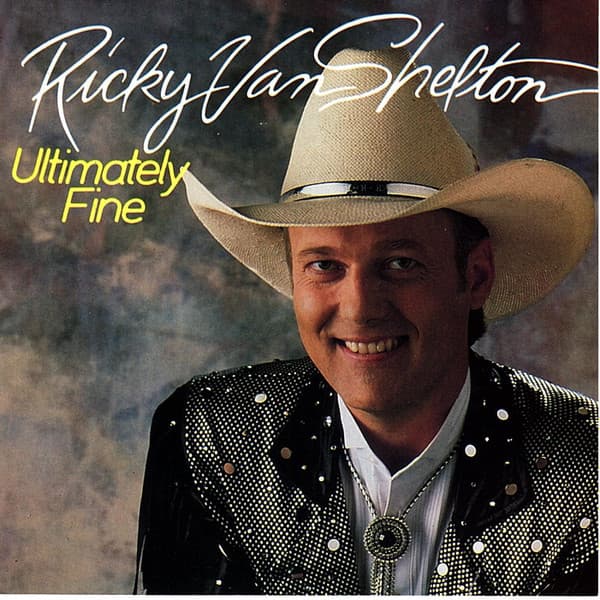
That Ache of What Might Have Been: The Enduring Echo of “Ultimately Fine”
A poignant reflection on lost love and the deceptive calm of acceptance.
Ah, the late 1980s. For many of us, it was a time of shoulder pads and big hair, but also a golden era for country music, a period when traditional sounds found a new, mainstream footing. And at the heart of that resurgence stood Ricky Van Shelton, a man whose smooth baritone and earnest delivery captured millions of hearts. He was a singer who seemed to effortlessly embody the classic country crooner, yet infused his songs with a vulnerability that felt deeply personal. Among his many beloved tracks, one that perhaps doesn’t always get the spotlight but holds a profound emotional weight is “Ultimately Fine.”
Released in 1987, “Ultimately Fine” was a track on Ricky Van Shelton’s debut studio album, Wild-Eyed Dream. While the album itself was a runaway success, spawning three number one hits (“Somebody Lied,” “Life Turned Her That Way,” and “Don’t We All Have the Right“) and reaching number one on the Billboard Top Country Albums chart (eventually being certified Platinum by the RIAA), “Ultimately Fine” wasn’t released as a single and therefore didn’t have its own specific chart position. However, its inclusion on such a monumental debut album speaks volumes about its quality and the artist’s belief in its message. It was a deep cut that resonated with listeners who delved beyond the radio hits, discovering another facet of Shelton’s artistry.
The story behind “Ultimately Fine” is less about a specific dramatic event and more about the universal human experience of regret and the slow, often painful, process of coming to terms with a love that slipped away. Written by Samuel Lianas and Kurt Neumann, the song delves into the bittersweet aftermath of a broken relationship. It’s not a tale of fiery arguments or sudden betrayals, but rather the quiet, lingering sorrow of a man who, in hindsight, recognizes the depth of what he lost. He speaks of a love that he “let get away,” a realization that dawns on him long after the fact. The lyrics paint a picture of a man trying to convince himself, and perhaps others, that he’s moved on, that everything is “ultimately fine,” even as the gnawing ache of what could have been persists. It’s a sentiment many of us, as we accumulate years and experiences, can relate to: the quiet heartbreak of past choices, the phantom limb sensation of a connection severed, and the brave face we often put on for the world.
The meaning of “Ultimately Fine” lies in this subtle yet profound exploration of self-deception and the enduring shadow of regret. The protagonist isn’t openly weeping or lashing out in anger; instead, there’s a weary resignation in his voice. He repeats the mantra of being “ultimately fine,” but the very act of needing to say it, to reiterate it, reveals the truth: he’s anything but. It’s the kind of song that speaks to the moments we all face when we look back and wonder, “What if?” It’s about the emotional maturity (or perhaps, forced acceptance) that comes with age, where raw pain gives way to a dull ache, a constant reminder of what once was. For older listeners, this song taps into that well of shared experience, conjuring memories of youthful mistakes, roads not taken, and the quiet dignity with which we carry our emotional scars.
In the tapestry of Ricky Van Shelton’s early career, “Ultimately Fine” stands as a testament to his nuanced vocal interpretations and his ability to convey profound emotion without histrionics. While Wild-Eyed Dream launched him into superstardom with its more upbeat and overtly romantic tracks, “Ultimately Fine” offered a glimpse into the reflective, melancholic side that would continue to define some of his most memorable performances. It showcases the soulful depth in his voice, capable of delivering a lyric with such sincerity that you can almost feel the weight of his character’s unspoken sorrow. It reminds us that even amidst platinum sales and number one hits, the most enduring songs are often those that speak to the universal truths of the human heart, even when those truths are tinged with a beautiful, lingering sadness. It’s a song to be savored, to be reflected upon, and to be truly felt, long after the final notes fade away.